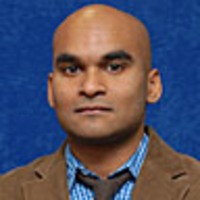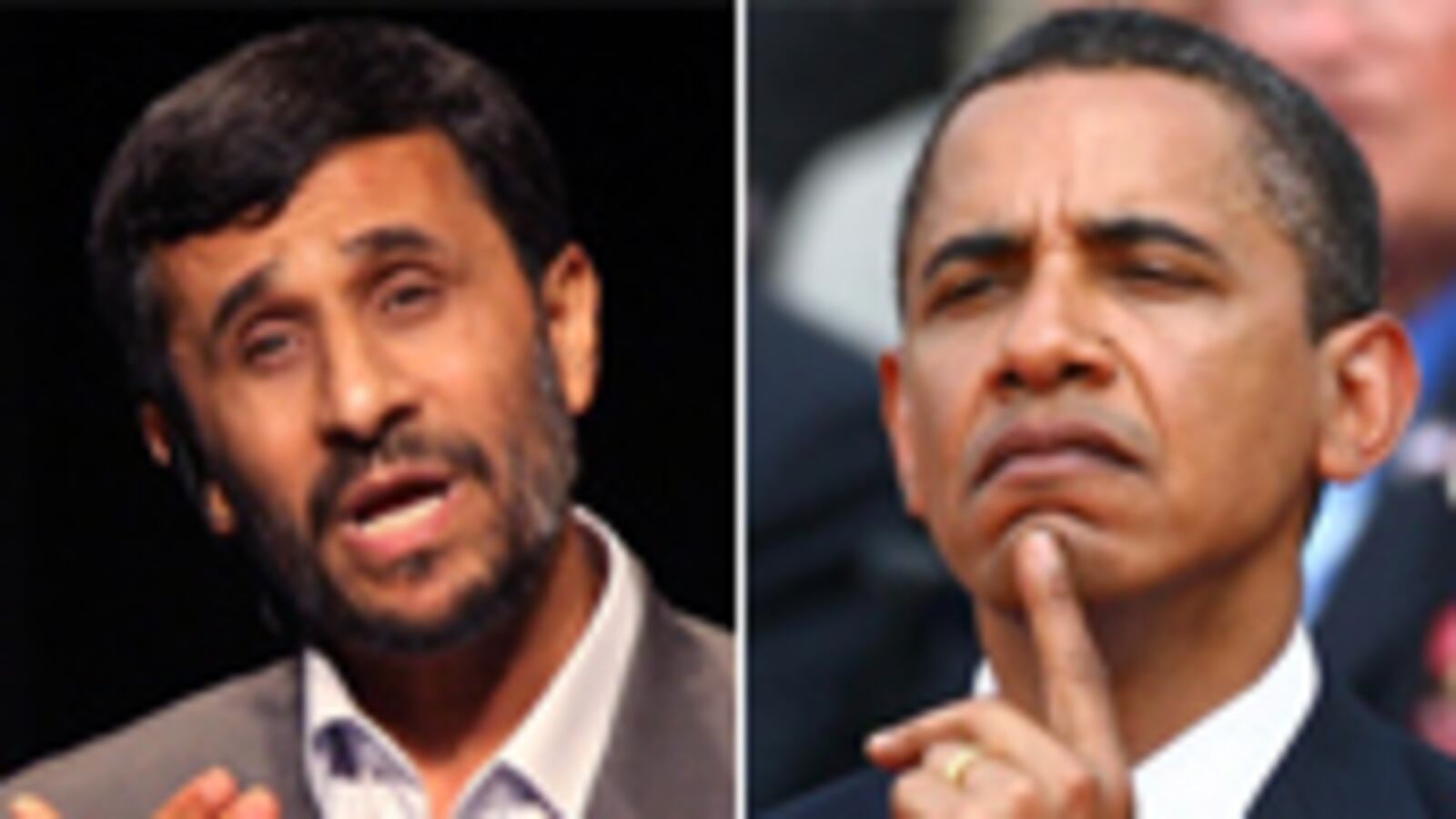
Plus, read more insight on Iran's election from other Daily Beast writers.
After a day of nonviolent protests in Iran, seven Iranians died after anger boiled over and a gaggle of anti-Ahmadinejad activists threatened to set fire to the headquarters of the Basij, a notorious loyalist paramilitary that does the domestic dirty work of the Iranian Revolutionary Guards. The teenage Basijis are the acne-ridden thugs who savagely beat women who dare to violate the dress code imposed by Iran's supposedly Islamic regime, and they've long been a pillar of the country's quasi-fascist order. That members of the earnest, green-shirted, Twittering rabble that's rocked the streets of Tehran dared to take on the Basijis in so spectacular a fashion suggests that the days of the Islamic Republic of Iran are numbered. Once the fear is gone, the country will never be the same. The only question is whether Barack Obama, the first president to have deep and firsthand experience of the Islamic world, will stand with the kids or with the thugs. As the Iranian regime reveals itself to be as hollow and corrupt and vulnerable as the Soviet empire at the moment of Gorbachev's elevation, President Obama has the initiative—like President Reagan, he can use his moral authority to help bring an end to the nightmare reign of the mullahs. Or he can turn a blind eye as the hooded gangsters who run the country, the moral equivalent of Klansmen, beat members of Iran's answer to Generation Obama into submission.
The only question is whether Barack Obama, the first president to have deep and firsthand experience of the Islamic world, will stand with the kids or with the thugs.
Today, Obama treaded carefully, warning against “meddling” in Iranian elections. This is a continuation of his rhetoric as a presidential candidate, when Obama promised to dramatically alter America's relationship with Iran. Rather than lead us to the brink of a war that neither country could win, Obama promised to negotiate with Iran over its nuclear program, with the end result being a friendly and cooperative American relationship with a nuclear-free Iran. This was a far cry from President Bush's approach during his first term, when Iran was named a member of the "Axis of Evil." Foreign-policy thinkers from across the political spectrum, from liberal internationalists to arch-realists, considered Bush's moralistic approach to Iran a dangerous mistake, and most rallied behind Obama's more conciliatory stance. There's no question that Bush's rhetorical zeal was to some extent counterproductive. After the invasion of Iraq, the Iranian Revolutionary Guards essentially had a free hand to smuggle deadly weapons to their Iraqi allies. American forces knew that shutting down the pipeline of deadly IEDs and EPFs, responsible for maiming and killing perhaps hundreds of Iraqis and Americans, risked starting a major war with Iran. Oddly enough, had Bush avoided calling Iran's evil regime evil, he might have had a freer hand to take military action. And so there was an obvious logic to Obama's decision to ratchet down the ideological temperature, and to recognize that the mullahocracy wasn't going anywhere.
Now, however, the world looks rather different. When Ronald Reagan first met Gorbachev, he fell for him hard—so hard, in fact, that neoconservative hawks condemned Reagan for going soft in the head. A number of incendiary polemics were written about how Mikhail Gorbachev was a canny operator who promised to revitalize Soviet strength while soft-headed patsies like Reagan fell for his song-and-dance routine about perestroika. But it turns out that the soft-headed Reagan was right: Gorbachev really did represent a watershed, a recognition on the part of the Soviet elite that the old ways of doing business were badly broken and that the survival of the Soviet system was in jeopardy. Instead of clinging to the creaking Stalinist model, Gorbachev knew he had to democratize the Soviet state, and he knew that his main enemies weren't in America but rather in the Soviet military machine. And so Reagan, the obsessive Cold Warrior hellbent on the destruction of the Evil Empire, suddenly became a peace-loving, tambourine-shaking believer in a new Age of Aquarius. When circumstances changed, Reagan changed with them.
The Iranian state can't hold a candle to the Soviet Union at its prime. Whereas the Soviets could destroy the United States hundreds of times without breaking a sweat, the Iranians are low-level spoilers. But the Iranians are avid exporters of terrorist violence and ideological extremism, and the clerical regime has turned a once-prosperous country into an impoverished economic hellhole. When you think of the kids risking their lives to take on the armed Basijis, consider that there aren't nearly enough jobs to go around for the country's educated youths. For them, the outcome of the presidential election really was a matter of life and death. Just as Gorbachev's arrival changed everything in U.S.-Soviet relations, the revolt of Iran's middle classes should change everything in U.S.-Iranian relations.
It is easy to see why Barack Obama wouldn't want to stake his presidency on Iran. Universal health care was in the plan. Transforming the Middle East was not. But if anything, President Obama has demonstrated an admirable nimbleness in response to changing circumstances. When the Bush administration appeared to cheerlead for the overthrow of Hugo Chavez in Venezuela, they helped him score major propaganda points. Yet what's to stop President Obama from giving a major address about the universal struggle for human freedom, one that connects the longing of Iranians for real political justice with nonviolent resistance to Jim Crow and to colonialism? And why not announce a campaign against Iran's ruling elite as vigorous as the campaign against apartheid-era South Africa. When Ronald Reagan called on Gorbachev to tear down the Berlin Wall, it took just over two years to make the dream a reality. Given that Obama has a mile-wide competitive streak, perhaps the right question is: Can he do better?
Reihan Salam is a fellow at the New America Foundation and the co-author of Grand New Party.






